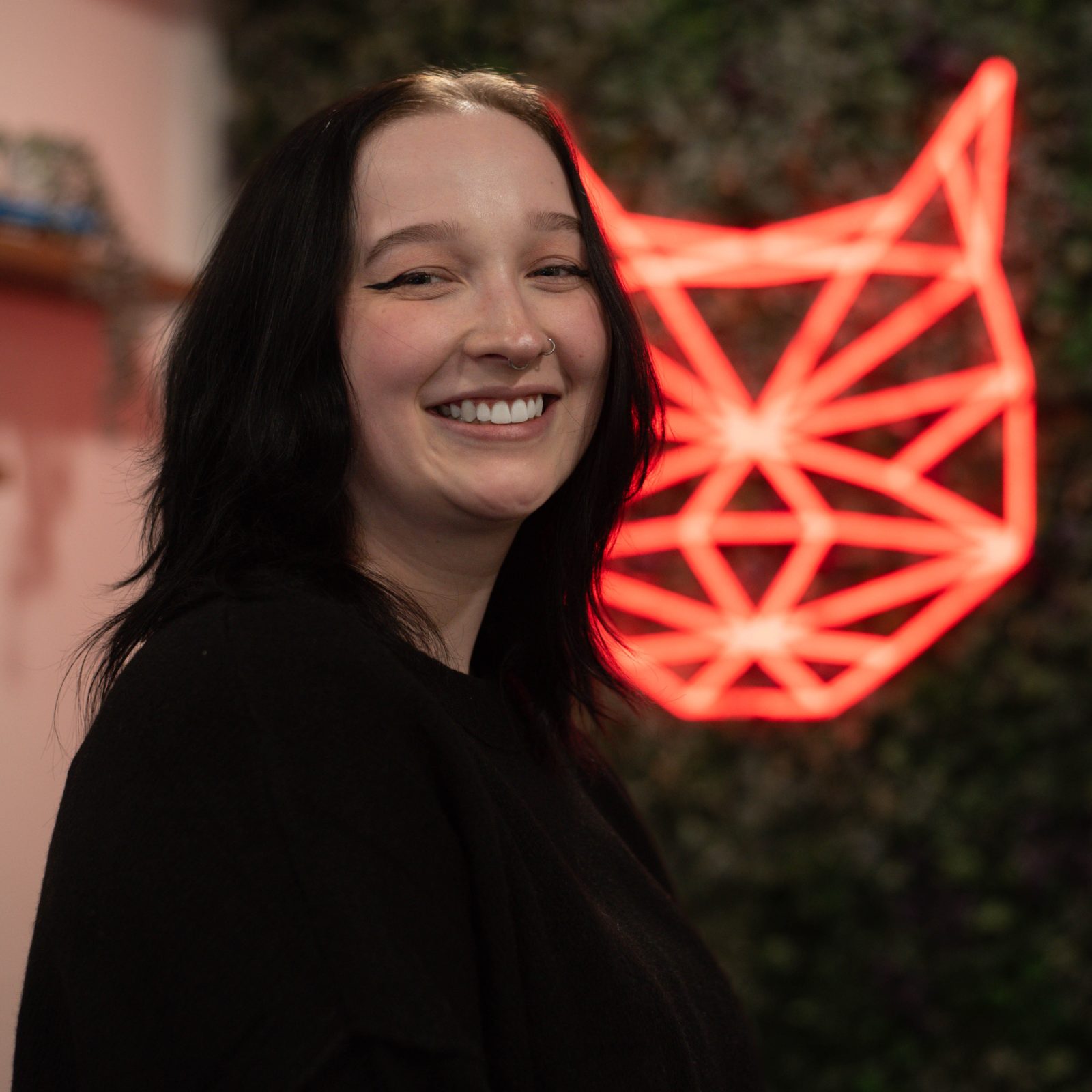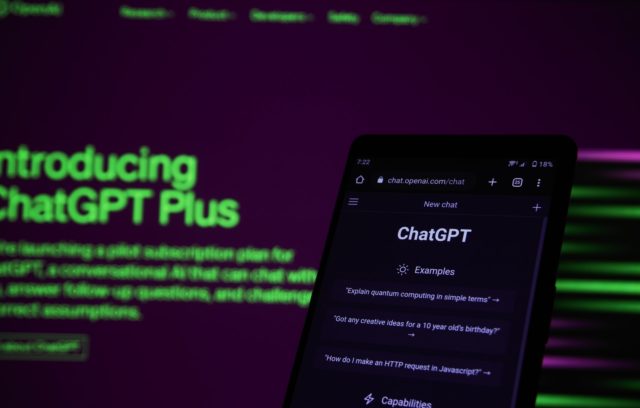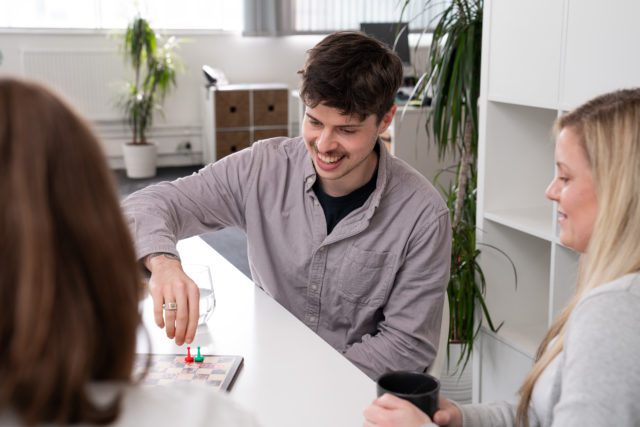PPC advertising has been described as a “quick-win” marketing strategy when it’s compared to other strategies such as SEO. However, how quick actually are these results, and how do we know if it’s working?
PPC can theoretically bring in results as soon as you hit publish and the ads begin to serve in the auctions, however, there are multiple factors to consider that can limit performance such as your budget, chosen keywords and competitors within the industry.
Read on to find out more about how long it takes PPC campaigns to work, if there’s any way to speed up these results and how you can test to see if these advertising campaigns are working.

We are in the age where paid advertising platforms utilise powerful algorithms and machine learning to increase performance. If you’ve set up a PPC campaign before, you might have noticed that performance starts off slow and usually ‘ramp up’ over a few months.
This is because, although conversions can come in as soon as the campaign is pushed live, data is needed to allow the campaign to work to its full potential. More data within the account means more fuel for the machine-learning and algorithm based bidding to further improve performance. This could take at least 3 months to work optimally.
This data can come in different forms, such as clicks from relevant users that don’t bounce (leave the webpage) as soon as they reach the landing page, or high value purchases or leads. Once you start getting this data, Google knows that a ‘certain type’ of user is more likely to convert and your ads will begin showing more often to this demographic. These demographics (also known as Affinity and In-Market audiences) can range from women within a certain age group, new parents or even those looking to buy their first car.
As explained above, the more data you have in the account, the better. However, there are factors which will limit the amount of data your account can collect.
Every keyword that you bid on in Google Ads has a volume, which is how many searches there are for this term per month. Keyword volumes can be found in Google Ads’ Keyword Planner or in other tools such as Semrush.
The higher the volume of a keyword, the more likely you are to receive an impression or a click. Bidding on just a few low-volume keywords (such as 10-30 impressions per month) will limit performance because your ads won’t be appearing in that many auctions. Best practice would be to do your research and find a good mix of high and low volume keywords to allow for the additional data to come in.
This will also depend on the industry you’re in – if you are in an extremely niche market with low volume searches, then multiple low-volume keywords will be the way to go, but you’ll need to allow more time for the campaigns to optimise.
Similar to the above, you could have high-volume keywords, but if your budget is £5 a day then again you will be limiting the number of times your ad can participate in the auction.
The ad groups within your campaign should ideally be getting 100+ clicks per month, so if your industry has a high CPC, you might want to rethink how much money you’re dedicating to Google Ads or keyword strategy.
£5 a day is great if that works for you and aligns with your business goals, but optimisations may take a little bit longer.
Now you know how long PPC can take to work, how do you know if it’s actually working? We’ve made a handy checklist for you for you to double-check:
Before you set up your Google Ads campaigns, you should have an idea of your KPIs and what you want to achieve with this platform. These metrics will help you to know if your campaigns are working or not. If you’re not sure what your KPIs are, then try thinking about a SMART KPI – these are Specific, Measurable, Achievable, Relevant and Time-Bound Key Performance Indicators.
Some examples of SMART KPIs from our existing clients include:
If you begin to see conversions come in for your campaigns, double check the quality of them and how relevant they are. This will indicate:
All keywords have a quality score (a rating out of 10 based on landing page experience, ad relevance and expected CTR). Quality scores influence what position your ads appear in the auction, as someone with a higher budget but lower quality score will appear lower than a competitor with a lower budget and higher quality score. Having keywords with higher quality scores will indicate that your keywords are relevant, reaching the right audience and performing well.
As you progress your campaign, you might notice that your performance drops when you make changes to the campaigns. This is because the campaigns will re-enter a learning phase where it needs to learn how to get conversions and clicks with the new settings.
Although it might be daunting to see a drop when you’ve applied a recommendation or A/B testing, be patient! Reacting too quickly to low performance can hinder performance further and you should always wait about 2-3 weeks before making further changes to your campaigns or drawing conclusions from data.

Now you know how to spot the signs of whether or not your campaign is working, learn how to speed up your PPC performance.
You could have the perfectly crafted ad campaign, but if you’re sending traffic to a low quality landing page then users will click off and find a competitor to buy from, or use the service of. Limiting the amount of clicks the user has to go through in order to convert will increase conversion rates.
Using free tools like HotJar can highlight areas of confusion or frustration which can be optimised to help a user convert quicker.
Every ad campaign will need negative keywords (especially if you are using broad or phrase match targeting). These will ensure your ads aren’t appearing for irrelevant queries, or searches that are more informational than commercial/transactional.
For example, you might be running an ads campaign for a local hairdresser. Bidding on “local hairdresser” with 0 negative keywords could trigger the ad for “local hairdresser jobs” or “hairdresser apprenticeships” which obviously aren’t your target audience.
Removing limiting factors such as low budget or low volume keywords will speed up how much data is coming into your account.
By this point, you’ve learned how long PPC typically takes to start working, what can impact it, and how you can speed things up. Now you have to decide if it’s worth that time and effort.
As PPC campaigns have to be routinely checked, audited and optimised, you will find yourself investing a lot of time into them. The size of the campaign will also dictate how much time you should be spending on your account. If you have 1 campaign with 1 ad group and 10 keywords, this can be checked less often than an account with 5 campaigns, 8 ad groups within each and hundreds of keywords.
Whether this time is spent looking into the best practices for Google Ads, competitors within your industry or new keywords to include, it is definitely time that is not wasted.
One mistake that we see quite often is marketers setting up a PPC campaign without an idea of what cost per conversions or return on ad spend (ROAS) they need to hit in order for their campaign to be profitable, which is ultimately what keeps your business going. Setting up a Google Ads campaign might seem like the next step for your marketing, but if you need a £3 CPA to break-even, then you might want to consider other ventures first, such as SEO.
Investing money into digital advertising has the potential to take your business to new heights. PPC is an avenue we will always recommend to advertisers that have room for manoeuvrability with their budgets.

Whether you’re a small business looking to find new avenues for growth, or you’re a well established company looking to increase revenue, Wildcat Digital can help you get the results you need with tailored PPC services including Paid Search, Paid Social, Display Ads and Video Ads.
We offer straightforward advice and transparent reporting – speak to one of our experts for a free consultation and audit of your existing PPC accounts, or even a campaign plan if you haven’t tried online advertising before.

Founder
Our founder, Will Hitchmough, worked at a number of high profile Sheffield Digital Agencies before founding Wildcat Digital in 2018. He brings an extensive knowledge of all things related to SEO, PPC and Paid Social, as well as an expert knowledge of digital strategy.
Digital Marketing can be a minefield for many businesses, with many agencies ready to take your money without knowing how to deliver results. I founded Wildcat Digital to deliver digital success to businesses with smaller budgets in a transparent way.

Head of Growth
Rich joined us in May 2024 to head up our growth team. With years of experience helping other agencies to grow, Rich joins us at an exciting time as Wildcat is working on a five-year plan to become one of the biggest agencies in the UK.
Outside of work, Rich is a father to three children, which keeps him very busy! He’s also recently started running again to keep fit and loves a bit of DIY.

Head of Digital
Sarah joined Wildcat in January 2025, bringing over seven years of SEO expertise to the team. With a background in Fashion Communication and Promotion, she has worked both in-house and at agencies, covering a range of digital marketing specialisms before focusing on SEO.
Passionate about all things search, Sarah thrives on helping brands grow their online presence.
Outside of work, she enjoys walking her dog, running, and shopping for vintage clothing.

Office Manager
Amelia joined Wildcat Digital in January 2025, bringing extensive experience in HR, Health & Safety, Facilities Management and IT Support. Previously an Operations Manager at The University of Sheffield, she has a strong background in creating efficient and well-organized work environments.
Specialising in HR, Health & Safety, and Facilities Management, Amelia ensures the Wildcat Digital team has the resources and support needed to thrive. Whether managing office operations, maintaining compliance, or fostering a positive workplace culture, she keeps everything running smoothly.
Outside of work, Amelia loves trying new things, traveling, camping, and walking. She also enjoys socialising and exploring new places with friends and family. Her adventurous spirit and proactive approach make her a valued member of the team.

Client Success Coordinator
Siena joined us in 2023 with a background in sales and digital marketing. She leads on client relationships across the company, ensuring that our customers are happy throughout their journey with us, from their initial consultation through to onboarding and beyond.
Outside of work, Siena enjoys travelling and getting stuck into the local culture. She likes to make the most of her experiences and particularly enjoys watching sunrises and sunsets from beautiful locations around the world.

SEO Account Director
Paul has a strong background in SEO, having previously founded and ran a successful eCommerce business, as well as running a personal blog that achieves an average of 17K users per month. Paul’s knowledge of SEO is extensive, with a strong emphasis on client handling and technical SEO.
Outside of work, Paul enjoys spending time with his family and staying active with weight lifting and combat sports.

Team Lead & Technical SEO Account Manager
With a degree in Computer Science and SEO experience dating back to 2017, Dariusz has a wide range of SEO skills and knowledge. His specialist knowledge of Technical SEO has firmly landed him the title of Wildcat’s Technical Wizard, and he has recently taken on the responsibility of Team Leader for the Panthers Team.
In his spare time, Dariusz loves hiking, experimenting and trying new coffees and loves learning new things. He is currently learning more about CRO and AI and how this could benefit our clients.

Team Lead & Senior SEO Account Manager
With a background in sales, Molly is a natural Account Manager, brilliantly handling any issues that come her way. Having joined us as a Digital Marketing Executive, and working part-time through her final year of University, Molly is a shining example of how hard work pays off. She is now an SEO Account Manager with a particular interest in Content and Client Management.
In her spare time, Molly loves to get out in nature, hiking and exploring the Peak District. She also loves cooking and likes to unwind with a bit of yoga.

PPC Team Leader
Libby joined Wildcat in 2021 as our first PPC hire. With a degree in Digital Media Production, a Master’s in Digital Media Management and previous experience in Social Media Management, Libby hit the ground running and has since climbed the ranks to Senior PPC Account Manager and has a particular interest in the eCommerce sector.
Outside of work, Libby likes gaming, and cooking and likes to keep active by lifting weights.

Senior SEO Account Manager
With a degree in Film and TV production, and a varied career history, Jamie made the move to marketing with a Masters degree in Digital Media Management. He has since worked in SEO at Agencies across Sheffield, before joining Wildcat and working his way up to SEO Account Manager. Jamie has a particular interest in backlinks and Digital PR and has recently gained a client a valuable backlink from Forbes!
In his spare time, Jamie is an avid foodie and loves trying new restaurants and cuisines. He also loves to travel and spent a year travelling to Australia after university.

SEO Account Manager
Jasmine joined Wildcat in 2022 with a strong background in SEO and Account Management. At the time, she was finishing up a Level 4 Apprenticeship in Digital Marketing from the Chartered Institute of Marketing, and has since worked her way up to SEO Account Manager. Jasmine excels at content writing and promotion, and particularly enjoys finding creative ways to join the dots on multi-channel campaigns.
In her spare time, Jasmine volunteers at a charity, helping combat loneliness & social isolation experienced by older neighbours. Outside of Wildcat, she owns a catering company, Savery Grazing, creating delicious grazing tables & platters for a range of events. She also loves skiing and exploring the Peak District.

Senior SEO Executive
After spending ten years managing businesses, restaurants, cafes and event spaces across Sheffield, Jon decided to change careers and joined Wildcat as an SEO Executive in 2022. He especially enjoys the client management side of the job, helping them to understand digital marketing and ways in which they can build their business’s presence online.
Outside of work, Jon likes to keep fit with running, badminton and football, and also loves music.

Senior SEO Executive
Andy joined Wildcat in 2023 after starting his digital marketing career in-house for a local Sheffield company. Since joining, he has developed a strong interest in Technical SEO and has strong skills in Account Management.
Outside of work, Andy loves music and plays in a couple of bands. He also enjoys rock climbing, cycling, photography and good food.

PPC Executive
Before joining Wildcat, Tom worked across different industries, building skills in sales and customer service. He later developed a passion for digital marketing whilst working on personal marketing projects and freelance ventures, and gained numerous certifications in PPC and Social Media.
Outside of work, Tom enjoys staying active by going to the gym and hiking. He also loves travelling and motorbiking.

Senior SEO Executive
Kezia joined us in July 2024 after completing a CIM Certificate in Digital Marketing and gaining experience in Content SEO at another Sheffield agency.
In her spare time, Kezia loves to get outdoors, bouldering, hiking and travelling.

Senior PPC Executive
Alex joined Wildcat Digital in December 2024 as a Senior PPC Executive, bringing a strong background in Paid Media, Paid Social, and Programmatic advertising. With a degree in Business & Marketing and Google Ads certifications, she has the expertise to craft high-performing campaigns that drive results.
Before joining Wildcat Digital, Alex worked at two leading agencies in Leeds, honing her skills across various digital advertising platforms. Her analytical mindset and strategic approach help businesses maximize their online presence and advertising budgets.
Outside of work, Alex enjoys spending time with her dog, Lola, and going on walks with her dog walking group. She’s also a keen footballer and loves playing five-a-side whenever she gets the chance. Her enthusiasm and team spirit make him a great addition to the Wildcat Digital team.

SEO Executive
Amy joined Wildcat in 2024 with a background in journalism, having worked as a News Editor and Editor-in-Chief at The Sheffield Tab. She is naturally interested in Content SEO and research, so will no doubt prove to be a content power-house.
In her spare time, Amy loves watching crime shows, listening to music and hanging out with her dog, Eddie!

SEO Executive
Reiss joined the Wildcat Digital team in July 2025, with a background in journalism and digital content, Reiss brings both creativity and technical know-how to the team.
After graduating with a Journalism Studies BA from the University of Sheffield, where he also served as Games Editor and Deputy Editor for the student-run newspaper – Reiss jumped straight into the world of climate tech communications.
Outside of work, Reiss loves crochet, swimming, playing guitar, and diving into both video and board games. He’s always up for picking up new skills and trying new things – which makes him a perfect fit for our team!

Content & Proposal Writer
Liv joined the WildcatDigital Team in June 2025, with a strong background in financial admin and client care, Olivia is taking an exciting step into the creative world – and we’re so glad she’s doing it with us!
She’s currently studying content creation through her apprenticeship with Wildcat, and already bringing fresh energy and creativity to the team.
Outside of work, Olivia runs her own BIAB nail business, loves reformer Pilates, long walks, and is a member of a competitive dance team.

December 17, 2025
As we enter into 2026 and reflect back on the year as business owners and digital marketers, we can’t help…

December 17, 2025
Could your website be too ‘thin’ to rank well? Are you even aware of the ways it could be lacking…

December 17, 2025
Creating effective website content relies on choosing the right keywords and understanding how Google interprets them. Even with a strong…